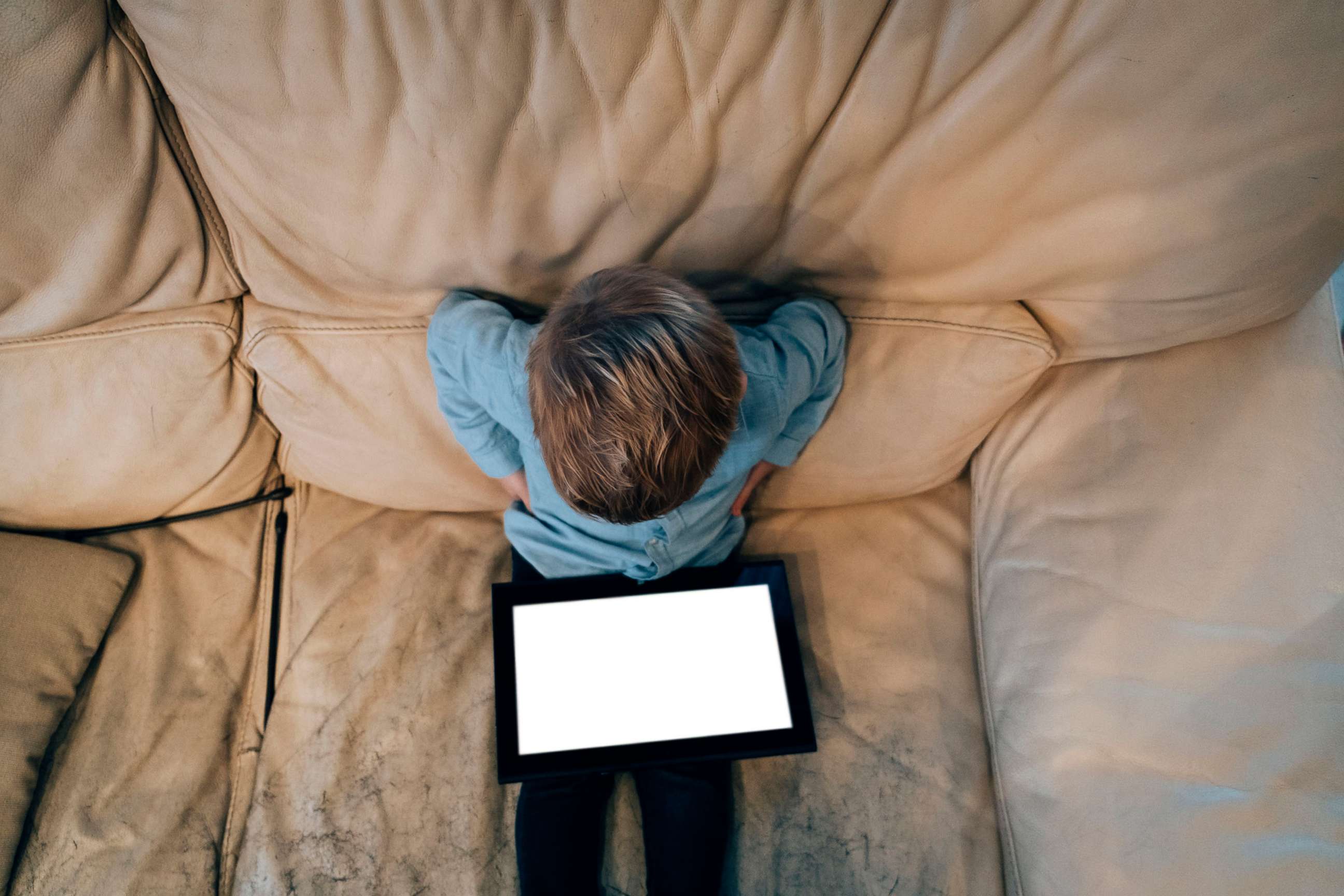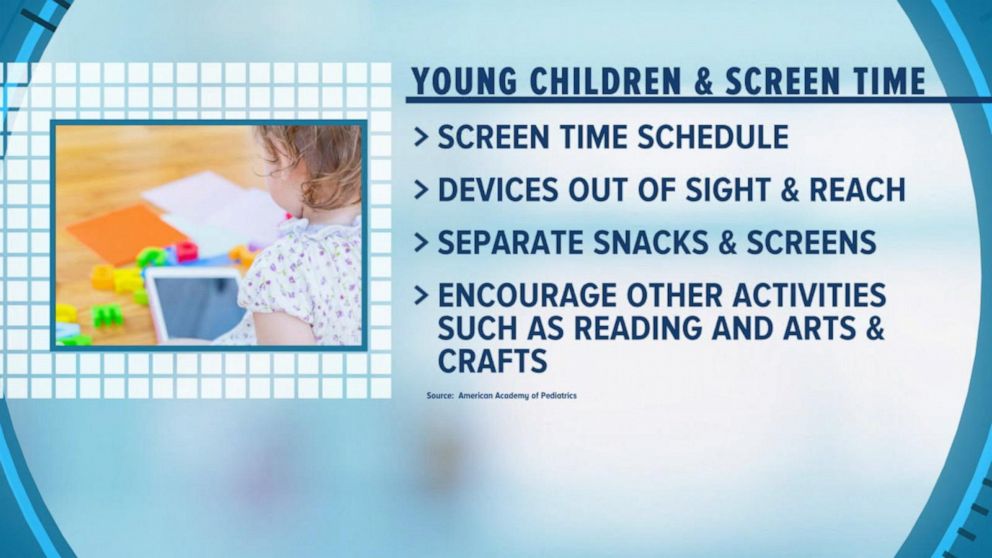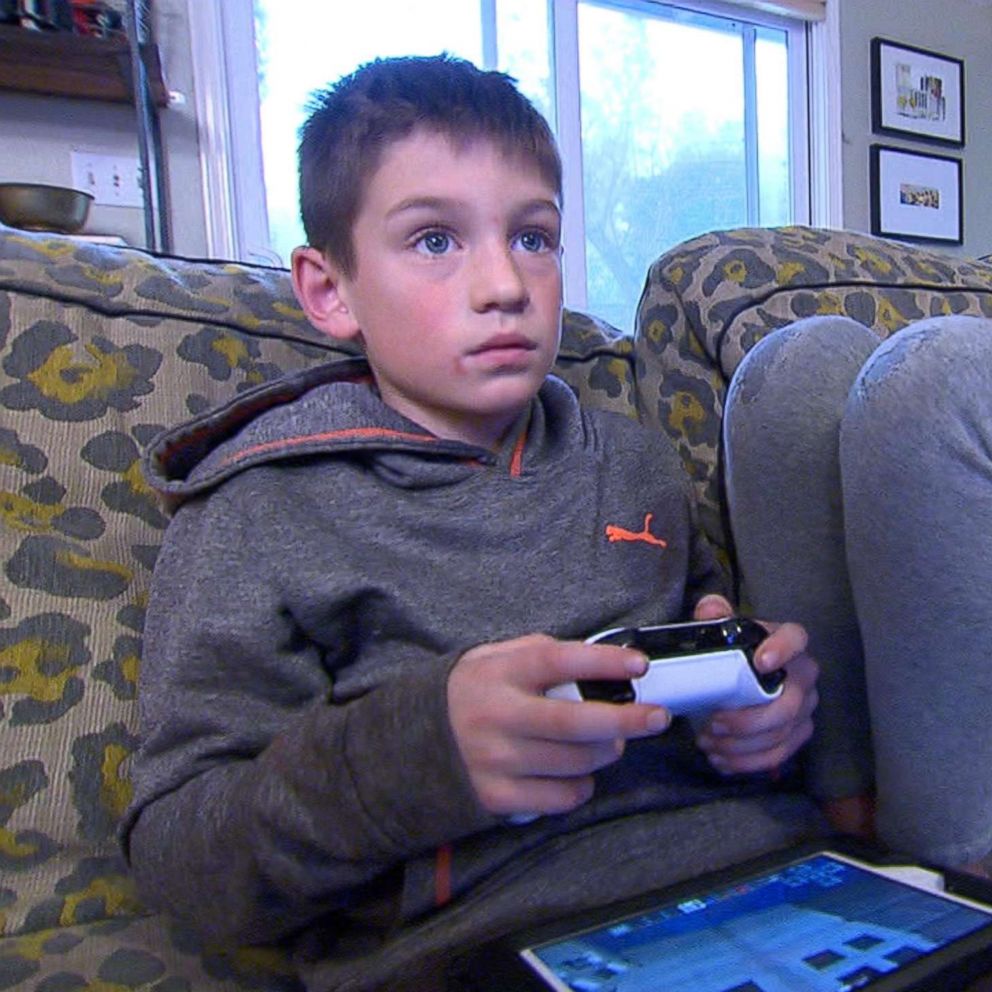Kids using screens more than recommended, new study finds
The majority of children under age 5 are getting more screen time than is recommended by pediatricians, new research shows.
The American Academy of Pediatrics (AAP) recommends babies and toddlers up to age 2 should avoid screen time other than video-chatting, while children ages 2 to 5 should be limited to no more than one hour per day of high-quality programming.
More than 75% of children younger than 2 and 64% of kids ages 2 to 5 exceeded the recommended guidelines, according to researchers at the University of Calgary, who analyzed over 60 studies looking at more than 89,000 children around the world.
The researchers described kids ages 5 and under as the "fastest-growing users of digital media," citing research showing that prior to the coronavirus pandemic, kids in that age group used screens for an average of around 25% of the time they are awake each day.
They found that kids under 2 consume more TV and movies, while kids ages 2 to 5 engage in everything from TV and movies to tablets and video games.

"Digital media are now a regular part of young children’s lives, and supporting families to best fit evidence-based recommendations into their daily routines needs to be a priority," the researchers wrote.
Too much screen time can be linked to obesity when it replaces physical activity or encourages mindless eating while being on screens, irregular sleep if they are on screens more than recommended, and even violence if exposed to violent content on TV, which can significantly impact their behavior, according to the AAP.Other studies have found that there can be cognitive and emotional delays in a child’s development from excessive screen time.
While regulated screen time does have some potential benefits for kids, like learning opportunities, parents should monitor their kids' use, according to Dr. Jennifer Ashton, ABC News chief medical correspondent.
"I think when you take into account the risk versus benefit, in this age group, the risks outweigh the benefits," Ashton said Tuesday on "Good Morning America."
Ashton recommends limiting screen time by keeping kids engaged in a variety of ways.

One tip is to make a screen time schedule that sets time aside on the weekends for activities away from computers and tablets. Making a chart for older kids so they can see where they are on their schedule is also another way to limit screen time.
Ashton also said it is important to separate eating from screen time, so kids are not consuming snacks or meals while they watch.
And finally, Ashton recommends bringing in other activities, like getting outside with kids to walk or play.
Dr. Aiya Aboubakr is an internal medicine resident at New York Presbyterian-Weill Cornell Medical Center, and a contributor to the ABC News Medical Unit.








